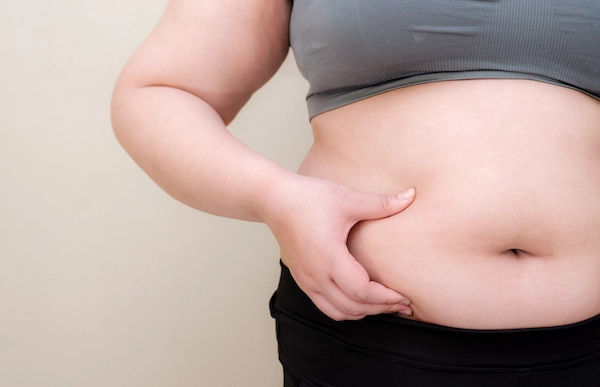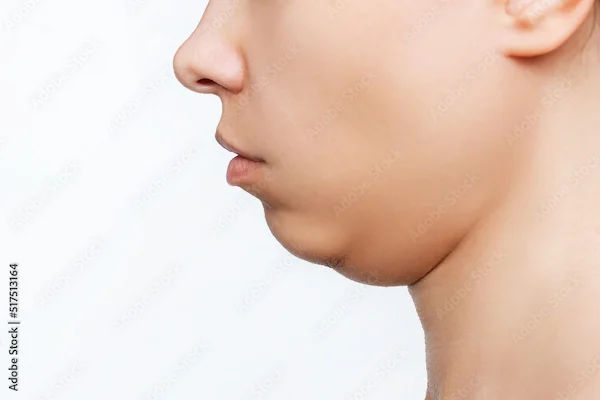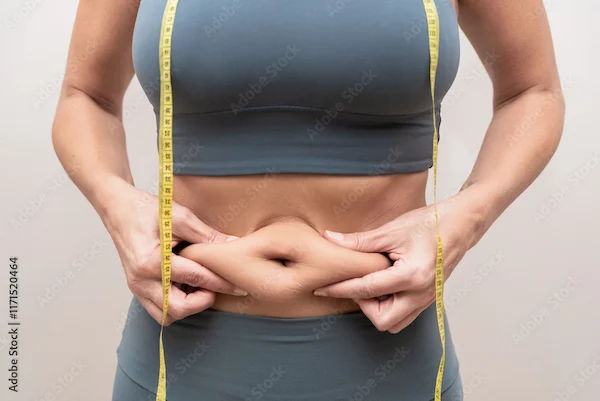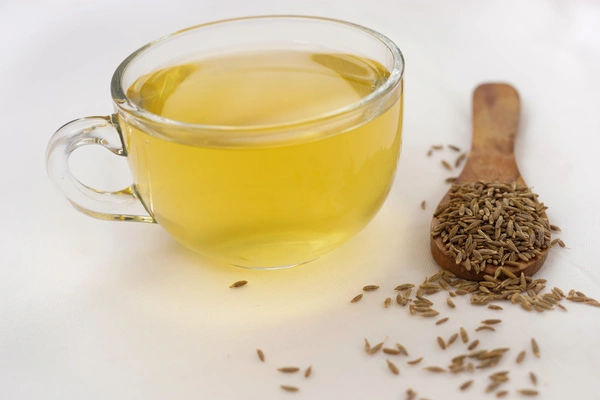How to Reduce Cheek Fat: A Simple Guide to a Slimmer Face
Discover effective ways to reduce cheek fat naturally with diet, exercise, and lifestyle changes. Learn about non-surgical and surgical options for a slimmer face.

Written by Dr. Sonia Bhatt
Last updated on 3rd Jul, 2025

Introduction
Having full cheeks can be charming, but many people feel self-conscious about extra fat in their face. If you’ve noticed that your cheeks look rounder or puffier than you’d like, don’t worry — there are ways to reduce cheek fat in a healthy, gradual way.
What Is Cheek Fat?
Cheek fat, also called buccal fat, is the soft tissue found on the lower part of your face. Everyone has some level of cheek fat, and it’s a natural part of our facial structure. Some people have rounder faces, while others may have a more angular look. The amount of fat in your cheeks is partly determined by genetics, meaning your family history plays a role in how your face looks. But other things, such as lifestyle, age, and weight, can also influence how your cheeks appear.
Though cheek fat is completely normal and doesn’t indicate any health problems, some people feel that having fuller cheeks makes them look younger or heavier than they’d like. If that sounds like you, the good news is that there are several ways to reduce cheek fat, or at least make it look less noticeable.
Common Concerns About Cheek Fat
Many people are concerned about cheek fat because it can make the face appear fuller or rounder, which may not be the look they want. Some may feel self-conscious about how their cheeks look in pictures or when they see themselves in the mirror. While some people love their full, youthful cheeks, others might feel that less fat in the face would give them a more defined or sculpted appearance.
If you feel like you’d prefer a slimmer face, it’s important to know that you’re not alone. Many people look for ways to reduce cheek fat, but it’s important to approach this in a way that is healthy, realistic, and sustainable.
Why Do Some People Have More Cheek Fat?
There are a few reasons why some people have more fat in their cheeks than others. Understanding these reasons can help you find the right approach to reduce cheek fat.
Genetic Factors: Genetics, or your family history, is a big factor in how your face looks. If your parents or grandparents have rounder faces with fuller cheeks, chances are you may have a similar face shape. There’s not much you can do to change your genetics, but understanding that it’s a normal part of your body can help you feel more comfortable with your appearance.
Lifestyle Choices and Diet: Your daily habits, especially what you eat and how active you are, can have a big impact on how much fat you store in your face. If you consume a lot of processed foods, sugary snacks, or high-fat meals, you may notice that your cheeks appear fuller as a result of weight gain. Likewise, a lack of exercise can contribute to overall weight gain, which can affect the face as well.
Age: As you get older, your body goes through many changes, and your face is no exception. Over time, the skin on your face loses some of its elasticity, and the fat in your face can shift, leading to sagging and puffiness. It’s normal for your face to change as you age, but a healthy lifestyle can help slow down these changes and keep your face looking fresh.
How to Reduce Cheek Fat Through Diet?
Making healthier food choices can help reduce cheek fat, as well as improve your overall health. Let’s look at some simple diet tips to reduce cheek fat.
Drink Plenty of Water: Staying hydrated is one of the easiest ways to reduce puffiness in your face. When your body is dehydrated, it holds on to excess water, which can make your face look swollen or bloated. Drinking enough water helps prevent this. Aim for at least 8 glasses of water a day to stay hydrated.
Eat a Balanced Diet: A healthy diet rich in fruits, vegetables, lean proteins (like chicken and fish), whole grains (like brown rice and oats), and healthy fats (like olive oil and avocados) can support a healthy weight and reduce cheek fat. These foods help your body function at its best and prevent the buildup of excess fat in the cheeks.
Avoid Processed Foods: If you want to slim down your face, avoid foods that are high in unhealthy fats, sugar, and salt. Processed foods, fast food, sugary drinks, and snacks like chips and candy are often packed with empty calories and can contribute to weight gain, including in the face. Reducing your intake of these foods can help you reduce facial puffiness and get a slimmer look.
Cut Back on Salt and Sugar: Too much salt can cause your body to retain water, making your face look puffy. Excess sugar can also contribute to fat storage. By cutting back on sugary snacks, sodas, and salty foods, you can reduce bloating and help your face appear more sculpted.
Exercise for a Slimmer Face
Regular physical activity is a great way to maintain a healthy weight and reduce overall body fat, including cheek fat. Let’s look at how exercise can help.
Facial Exercises to Tone Your Cheeks: There are exercises you can do to target the muscles in your face, which may help tone and tighten your cheeks. For example, try puffing out your cheeks and holding the air for a few seconds before releasing it. Another simple exercise is to smile as widely as possible and hold the position for a few seconds. These exercises help to strengthen the facial muscles, which can give your cheeks a more defined look.
Cardio and Overall Fitness: In addition to facial exercises, cardio exercises like running, swimming, or cycling can help burn calories and reduce fat from all over your body, including your face. When you exercise regularly, your body burns stored fat, which can lead to a slimmer, more toned face.
Lifestyle Changes That Help
Certain lifestyle changes can also support your efforts in reducing cheek fat and improving the overall look of your face.
Get Enough Sleep: Sleep plays a key role in maintaining a healthy weight. If you don’t get enough sleep, your body’s hormone balance can get disrupted, leading to increased hunger and cravings, which can result in overeating. Aim for 7-9 hours of sleep each night to support your health and weight goals.
Manage Stress: Stress can cause emotional eating, leading to weight gain and puffiness. Finding ways to manage stress, such as through relaxation techniques, yoga, or deep breathing, can help you avoid overeating and maintain a healthy lifestyle.
Avoid Smoking and Excessive Alcohol: Both smoking and excessive alcohol consumption can contribute to a bloated face. Smoking harms the skin, causing it to age faster, while alcohol can dehydrate your body and make your face appear puffy. Limiting or avoiding these habits can support your efforts to reduce cheek fat.
Other Methods to Reduce Cheek Fat
If you’re looking for more advanced options, there are treatments that can help reduce cheek fat.
1. Non-Surgical Treatments
There are non-invasive treatments, like fat freezing (cryolipolysis) and laser therapies, which can target the fat in your cheeks and help reduce its appearance. These treatments don’t require surgery and can offer noticeable results with minimal downtime. If you’re interested in these options, consult with a professional to learn more.
2. Surgical Procedures
For more significant changes, some people choose surgical procedures, such as buccal fat removal. This is a surgery where a surgeon removes fat pads from your cheeks to create a more sculpted appearance. However, surgery should only be considered after careful consultation with a qualified surgeon, as it comes with risks and recovery time.
Consult Top Experts for Personalised Treatment
Natural Remedies and Home Techniques
Some people turn to home remedies to try to reduce cheek fat. While these methods may not work as quickly or dramatically as other options, they can still support your overall goal of reducing facial fat.
Massage Your Face: Using gentle massage techniques on your cheeks can help promote blood circulation and reduce puffiness. Some people use tools like jade rollers to massage the face. These massages can help drain excess fluids and make your face look slimmer over time.
Herbal Remedies: Certain herbs, like green tea or ginger, are believed to have fat-burning properties and may help reduce puffiness. While these remedies can be beneficial when used as part of a healthy lifestyle, they should not be relied upon as quick fixes.
Common Myths About Cheek Fat
There are many myths about how to reduce cheek fat. Here are a few things to keep in mind:
Spot reduction is not possible: While facial exercises can help tone muscles, you cannot reduce fat in specific areas by targeting them alone. Fat loss happens all over your body as you lose weight.
Fad diets don’t work: Extreme diets that promise quick results often lead to temporary changes and can harm your health. A balanced, sustainable approach is always the best option.
Tracking Your Progress and Staying Motivated
It’s important to set realistic goals and remember that reducing cheek fat takes time. Take photos or measurements every few weeks to track your progress. Celebrate small wins along the way, and remember that consistency is key to seeing lasting results.
Conclusion
Reducing cheek fat is a gradual process that involves making healthy changes to your diet, exercise routine, and lifestyle. While there are advanced treatments available, focusing on healthy habits like eating well, staying active, and managing stress is the best way to achieve a slimmer face in a sustainable way. Keep a positive mindset, set achievable goals, and be patient with yourself — you’ll start seeing results over time.
Consult Top Plastic Surgeons
Consult Top Plastic Surgeons

Dr. R K Seth
Plastic Surgeon
32 Years • MBBS, MS, MCh
Delhi
Apollo Hospitals Indraprastha, Delhi

Dr. Naveen Rao
Plastic Surgeon
20 Years • MBBS, MS, MCH,(PLASTIC SURGERY,FELLOSHIP IN COSMETIC SURGERY
Bengaluru
Apollo Hospitals Bannerghatta Road, Bengaluru
(25+ Patients)

Dr. Anup Dhir
Plastic Surgeon
38 Years • MBBS MS (General Surgery) MCh (Plastic & Reconstructive Surgery) FECSM (Fellow of the European Committee of Sexual Medicine). Senior Consultant- Plastic and Cosmetic Surgery.
Delhi
Apollo Hospitals Indraprastha, Delhi

Dr. Purushothaman V
Plastic Surgeon
27 Years • MBBS MS (Gen. Surg.) MCh (Plastic Surg.)
Chennai
Apollo First Med Hospitals P H Road, Chennai

Dr. Allu Bhavya Sree
Plastic Surgeon
6 Years • M.S., M.Ch (Plastic Surgery)(NIMS) Fellow Aesthetic Surgery (Belgium)
Chinagadila
Apollo Hospitals Health City Unit, Chinagadila
Consult Top Experts for Personalised Treatment

Dr. R K Seth
Plastic Surgeon
32 Years • MBBS, MS, MCh
Delhi
Apollo Hospitals Indraprastha, Delhi

Dr. Naveen Rao
Plastic Surgeon
20 Years • MBBS, MS, MCH,(PLASTIC SURGERY,FELLOSHIP IN COSMETIC SURGERY
Bengaluru
Apollo Hospitals Bannerghatta Road, Bengaluru
(25+ Patients)

Dr. Anup Dhir
Plastic Surgeon
38 Years • MBBS MS (General Surgery) MCh (Plastic & Reconstructive Surgery) FECSM (Fellow of the European Committee of Sexual Medicine). Senior Consultant- Plastic and Cosmetic Surgery.
Delhi
Apollo Hospitals Indraprastha, Delhi

Dr. Purushothaman V
Plastic Surgeon
27 Years • MBBS MS (Gen. Surg.) MCh (Plastic Surg.)
Chennai
Apollo First Med Hospitals P H Road, Chennai

Dr. Allu Bhavya Sree
Plastic Surgeon
6 Years • M.S., M.Ch (Plastic Surgery)(NIMS) Fellow Aesthetic Surgery (Belgium)
Chinagadila
Apollo Hospitals Health City Unit, Chinagadila




